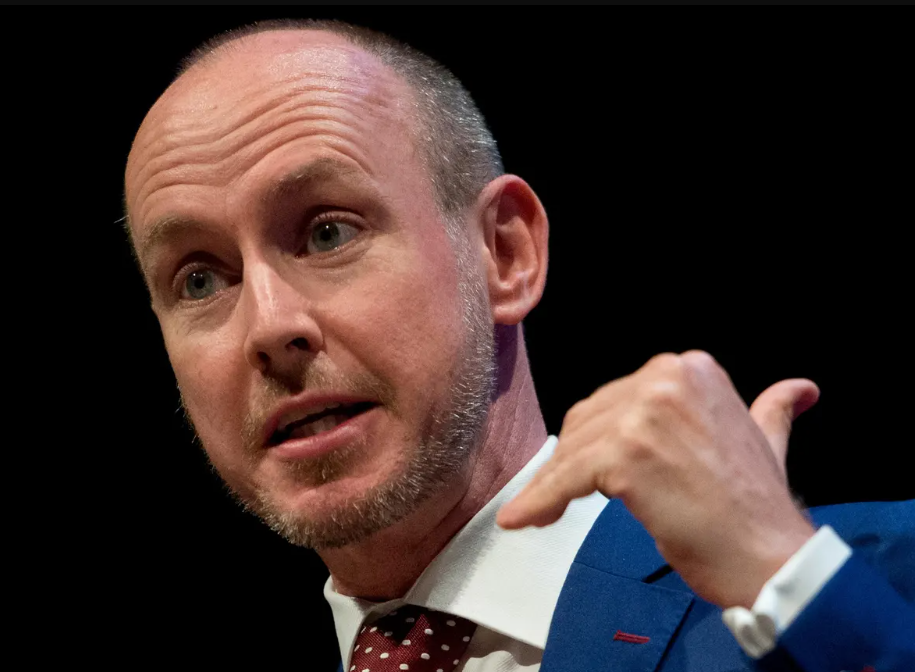If Labour Wins Today, It Could Be Bad for Homeowners, Business Owners, Drivers, Savers, and Pensioners. But You Can Stop It with This Voting Guide-DANIEL HANNAN

What has Sir Keir Starmer done to deserve a big win? Did he save a drowning puppy? Did he win a heroic medal?
Has he filled his party with amazing politicians that we would trust them with our money?
Has he been right on policy?
No, he hasn’t. The Labour leader’s main skill is saying what people want to hear. When he was climbing the Labour ranks, he was left-leaning. When he ran for leadership in 2020, he promised to follow Jeremy Corbyn’s plans.
His team isn’t impressive either. The person Labour wants as foreign secretary, David Lammy, once thought that Henry VIII was followed by Henry VII on Celebrity Mastermind.
If you want to stop Labour from getting a supermajority, vote strategically. In 123 close seats, supporting the Tory candidate over Labour, Lib-Dem, or SNP rivals will help ensure an effective opposition. In eight seats where Reform is second, voting for Nigel Farage’s party could reduce Labour’s seats.
Starmer’s policies have been off the mark. For instance, he predicted 100,000 new COVID-19 cases a day when Boris Johnson lifted restrictions in 2021, but cases dropped instead. Labour would have kept us locked down longer for no reason.
Yet, polls suggest he might get the biggest majority ever. Some blame the Conservatives for this. Governments lose elections rather than oppositions winning them. But is it fair? The polls suggest the Tories might get fewer MPs than ever.
Sure, the Conservatives made mistakes over 14 years in power. But do they deserve total defeat? Did they attempt a coup? Collaborate with enemies? Lose a war?
People say they achieved nothing in 14 years. But is that true?
Remember 2010, when Gordon Brown left office, and his Chief Secretary left a note saying there was no money. David Cameron inherited a massive deficit, yet the British economy grew faster than any comparable EU state until the lockdown.
Under the Tories, Britain built two million homes, reduced street crime to record lows (except in London), improved school performance, and removed income tax for the lowest earners, helping millions into work.
Brexit led to the world’s first vaccine rollout and allowed us to join the Pacific Partnership. We resisted Putin’s aggression in Ukraine.
Some people mock the £350 million promised for the NHS during the Brexit campaign. In reality, the NHS budget increases far exceed that amount now. Huge NHS funding increases haven’t fixed the struggle to get GP appointments, though. Why? Because we went through a pandemic, missed screenings, and did less exercise, which increased health problems.
Our frustration with the government partly comes from forgetting the pandemic’s impact. We paid ourselves to stay home, so we complain about higher taxes and rising prices, forgetting the Bank of England printed money to cover lockdown costs.
The Conservatives had to deal with the financial crisis of 2010 and the pandemic. How would Labour have handled it? Starmer supported longer lockdowns and has always believed in strong government control.
Starmer recently said he’d let a loved one stay on an NHS waiting list rather than use private healthcare, which makes no sense as it takes up someone else’s spot. For Starmer, using private care seems sacrilegious.
He also wants to push more kids from private to state schools by taxing education, making Britain the only European country to do so.
His plan for a nationalised energy company isn’t promising either. State control rarely improves services.
Labour MPs say they won’t raise income tax, National Insurance, or VAT, but they’ll likely tax businesses, savings, property, and inheritance instead.
There’s still time to stop Labour. A few more Conservative votes in key areas can prevent Labour from having unchecked power. This would ensure the opposition remains Conservative, supporting lower taxes, strong defence, and secure borders.
If you want higher spending and more progressive policies, vote Labour. If you think taxes and spending are high enough, and Britain can govern itself, then consider the impact of a Labour win.
If Labour wins, they’ll likely raise taxes, expand bureaucracy, increase public debt, and allow more immigration. Border controls will weaken, and we might move closer to the EU again. Unions and progressive groups will gain power, leading to more bureaucracy.
For those who doubt a Labour landslide, remember the mistakes pollsters made in past elections and the EU referendum. The first-past-the-post system might give Labour a huge win without a majority vote. But Conservative-held marginal seats could change if enough voters change their minds.
Many voters are undecided, and even a small number of votes in key seats could alter the outcome. In his final campaign speech, Rishi Sunak said a few hundred votes in close seats could decide the election.
Sunak warns that a Labour win could lead to years of their control. He reminds voters that Starmer has flip-flopped on key issues and can’t be trusted to stick to his word.




